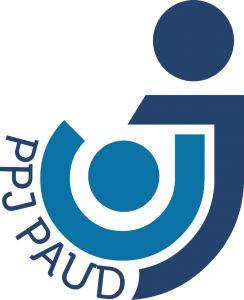PENINGKATAN KEMAMPUAN MEMBACA PERMULAAN ANAK MELALUI METODE MONTESSORI
DOI:
https://doi.org/10.30736/jce.v6i1.770Abstract
Penelitian ini bertujuan untuk mengetahui peningkatan kemampuan membaca permulaan melalui metode Montessori. Penelitian menggunakan pendekatan kuantitatif dengan desain action research. Penelitian ini terdiri dari dua siklus. Teknik pengumpulan data dalam penelitian ini adalah observasi, wawancara, dan dokumentasi. Dalam penelitian ini menggunakan pemeriksaan keabsahan data menurut Guba meliputi credibility, tranferability, dependability, dan confirmability. Â Hasil penelitian menunjukkan data pra tindakan sebesar 40,71 %, siklus I sebesar 74,12 %, dan siklus II sebesar 85,96%. Dari hasil tersebut disimpulkan bahwa metode montessori dapat meningkatkan kemampuan membaca permulaan anakReferences
Doman, Glenn dan Doman, J. (2005). How To Teach Your Baby To Read. Kaliedo Graphics Service Group.
Hainstock, E. G. (2002). Montessori untuk Pra sekolah (terjemahan). PT Pustaka Delaprasta.
JR, R. E. O. (2012). Language Development An Introduction (New York). Pearson.
Marzano, R. J. (2007). The Taxonomy of Educational Objectives Second Edition. Corwin Press.
Mills, G. E. (2003). Action Research: A Guide for Teacher Research. Pearson Education.
Montessori, M. (2008). The Absorbent Mind Edisi Bahasa Indonesia. Pustaka Pelajar.
Morrison, G. S. (2012). Dasar-dasar Pendidikan Anak Usia Dini (PAUD). PT Indeks.
Seefeldt, C. dan B. A. W. (2008). Pendidikan Anak Usia Dini Menyiapkan Anak Usia Tiga, Empat dan Lima Tahun Masuk Sekolah. PT Indeks.
Sudijono, A. (2001). Pengantar Evaluasi Pendidikan. PT Remaja Grafindo Persada.
Sudjana, N. (2001). Penilaian Proses Hasil Belajar Mengajar. PT Remaja Rosdakarya.
Susan, J. (2005). How to Help Children Learn. Diglossia.
Susanto, A. (2011). Perkembangan Anak Usia Dini. Kencana Prenada Media Group.
Susanto, A. (2015). Teori Belajar Dan Pembelajaran Disekolah Dasar. Prenada Media.
Tarigan, H. G. (2018). Metode Pengembangan Bahasa. Angkasa.
Downloads
Additional Files
Published
How to Cite
Issue
Section
License
Please find the rights and licenses in JCE (Journal of Childhood Education). By submitting the article/manuscript of the article, the author(s) agree with this policy. No specific document sign-off is required.
1. License
Use of articles will be governed by the Creative Commons Attribution - ShareAlike license as currently displayed on Creative Commons Attribution-ShareAlike 4.0 International License.
2. Author(s)' Warranties
The author warrants that the article is original, written by stated author(s), has not been published before, contains no unlawful statements, does not infringe the rights of others, is subject to copyright that is vested exclusively in the author and free of any third party rights, and that any necessary written permissions to quote from other sources have been obtained by the author(s).
3. User Rights
JCE (Journal of Childhood Education)'s spirit is to disseminate articles published are as free as possible but there is a little payment for publication. Under the Creative Commons license, JCE (Journal of Childhood Education) permits users to copy, distribute, display, and perform the work for commercial purposes. Users will also need to attribute authors and JCE (Journal of Childhood Education) on distributing works in the journal and other media of publications.
4. Co-Authorship
If the article was jointly prepared by more than one author, any authors submitting the manuscript warrants that he/she has been authorized by all co-authors to be agreed on this copyright and license notice (agreement) on their behalf, and agrees to inform his/her co-authors of the terms of this policy. JCE (Journal of Childhood Education) will not be held liable for anything that may arise due to the author(s) internal dispute. JCE (Journal of Childhood Education) will only communicate with the corresponding author.
5. Miscellaneous
JCE (Journal of Childhood Education) will publish the article (or have it published) in the journal if the article’s editorial process is successfully completed. JCE (Journal of Childhood Education)'s editors may modify the article to a style of punctuation, spelling, capitalization, referencing and usage that deems appropriate. The author acknowledges that the article may be published so that it will be publicly accessible and such access will be free of charge for the readers as mentioned in point 3.
JCE (Journal of Childhood Education) by Universitas Islam Lamongan is licensed under a Creative Commons Attribution-ShareAlike 4.0 International License.Based on a work at http://journalfai.unisla.ac.id/index.php/jce.












